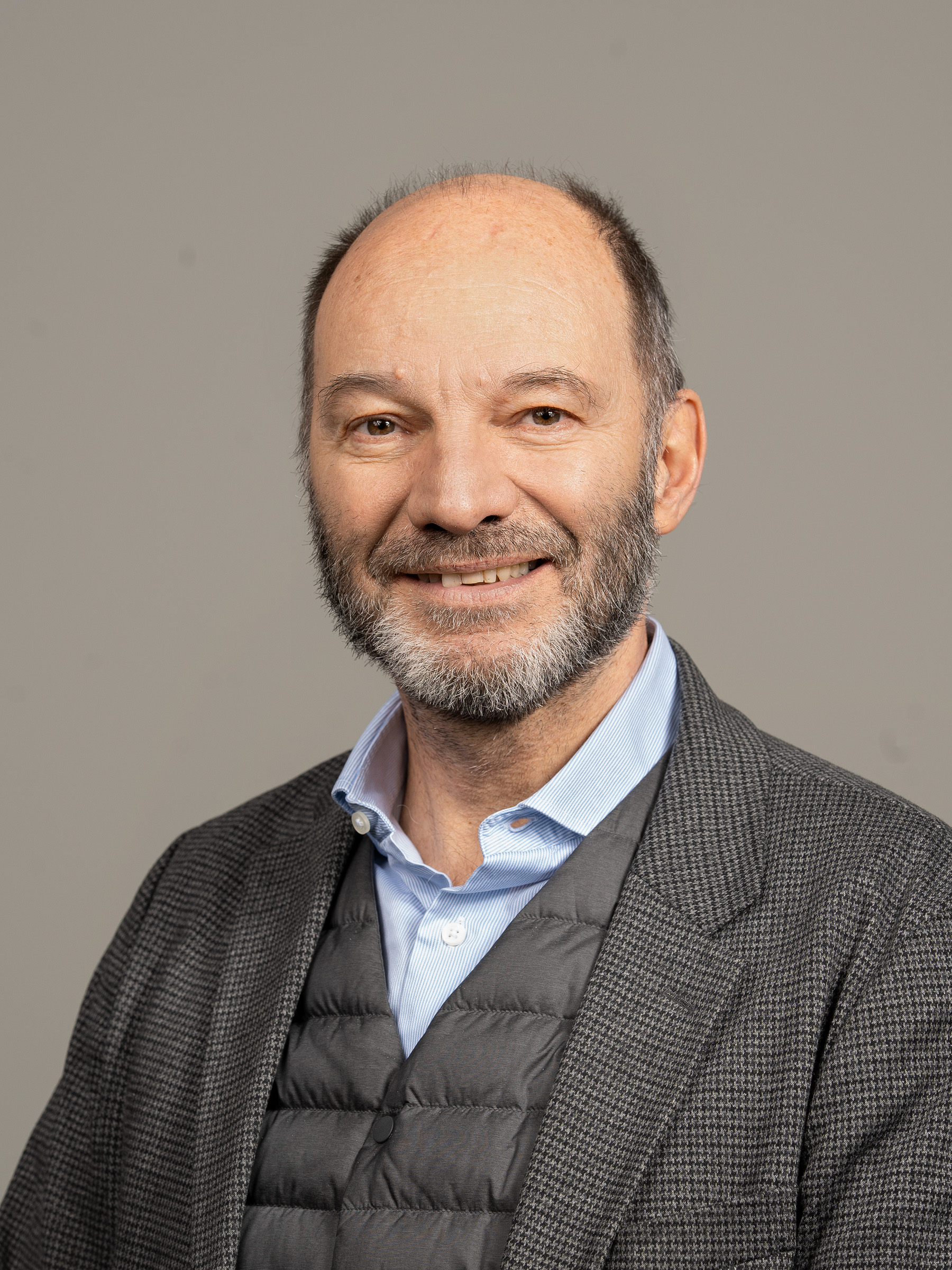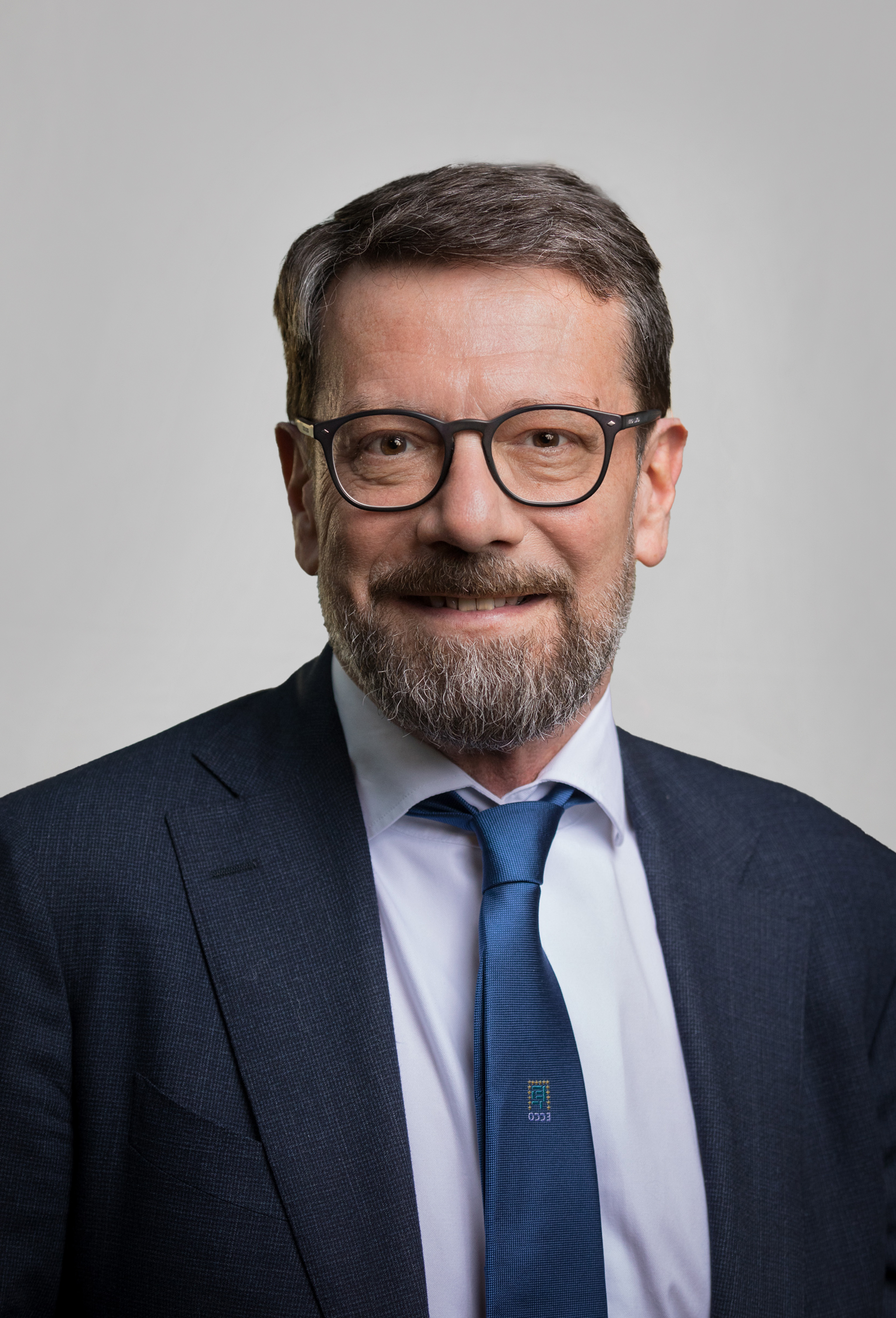Interview with New President-Elect of ECCO: Alessandro Armuzzi
Edouard Louis, ECCO News Editor
 Edouard Louis Edouard Louis© ECCO |
Dear Alessandro,
Congratulations again on your election as the new President-Elect of ECCO.
Dear friends and colleagues,
Thank you very much for your kind congratulations on my election as the new President-Elect of ECCO. It is a tremendous honour and responsibility, and I look forward to working closely with all of you to advance the mission and impact of ECCO in the Inflammatory Bowel Disease (IBD) arena.
Could you present yourself in a few words?
I am currently serving as Professor of Gastroenterology at Humanitas University and leading the IBD Unit at Humanitas Research Hospital in Milan, Italy. Throughout my professional journey, I have maintained a dedicated focus on research, education and clinical care of patients living with Crohn’s Disease or Ulcerative Colitis. I first joined ECCO as an individual member many years ago. My activities within the organisation started in 2013, when I had the privilege of being appointed as a ClinCom Member, and I later became ClinCom Chair. It was a great experience indeed to contribute to the realisation of all the ClinCom tasks, both those undertaken in broad daylight and those performed backstage. In 2019 I became ECCO Internal Auditor, and in this role I provided independent and objective evaluation of the financial and operational activities of the organisation. Finally, in 2021 I had the privilege to be elected as ECCO Secretary, thus joining the Governing Board for the period up to 2024. As ECCO Secretary, I was fully committed to completion of my duties, working with and supporting the Presidents and representing ECCO when needed. I tried to fulfil the tasks of supervising, coordinating, notifying, recording, updating, chairing and liaising with the different components of the organisation as well as to listen to and help any ECCO Member from any country who was asking advice. Particular challenges during that period were weathering the COVID storm, reinforcing the careful leadership and friendship of each member of the Governing Board and protecting the integrity of ECCO, as a core value of the organisation.
What has been your path in IBD? Why did you choose to specialise in IBD and who have been your mentors in this field?
My career path into the field of IBD began somewhat serendipitously when, many years ago, I had the remarkable opportunity to undertake research at Oxford University and clinical training in IBD at the John Radcliffe Hospital in Oxford, UK. This period was transformative, igniting a lifelong passion and commitment to IBD care and research. I was fortunate to learn from distinguished mentors, including Derek Jewell, Simon Travis and, once back in Italy, Cosimo Prantera, whose invaluable guidance, expertise and mentorship significantly shaped my career and inspired my ongoing dedication to improving patient outcomes.
|
|
What are the main challenges today in your practice in IBD?
Today, in my practice, I face several complex challenges, primarily stemming from the rapidly evolving landscape of IBD management. The emergence of numerous new therapeutic modalities, including biologics and small molecules, requires careful integration into personalised treatment strategies. Additionally, the need for multidisciplinary care involving gastroenterologists, nurses, surgeons, radiologists, pathologists, nutritionists, psychologists and other specialists adds complexity to patient management. Ensuring cohesive, patient-centred approaches amidst these complexities is a critical and ongoing challenge.
And what are the main challenges worldwide for IBD?
On a global scale, we face considerable challenges due to the unprecedented increase in IBD incidence and prevalence worldwide, with IBD being projected to affect approximately 1% of the European population by 2030. This alarming trend calls for urgent strategic responses, including the allocation of adequate healthcare resources, effective public health strategies, education and patient empowerment initiatives.
What is the role of ECCO in this setting and how can ECCO help to deal with these challenges in Europe and globally?
ECCO is uniquely positioned to respond to these challenges effectively. Its role in fostering high-quality clinical research, standardising clinical practices, disseminating cutting-edge knowledge and advocating for equitable patient access to treatments is and will be pivotal. ECCO also serves as an essential platform for collaboration among healthcare professionals, researchers, patients and policymakers across Europe and globally.
What should be the top priorities for ECCO in the coming 10 years?
Looking ahead, ECCO's top priorities for the next decade should include: 1) strengthening international research collaborations to better understand and address the global epidemiological trends of IBD; 2) expanding initiatives in precision medicine to develop personalised therapeutic strategies tailored to individual patient needs; 3) enhancing comprehensive education and training programmes to equip healthcare professionals with advanced knowledge and skills for managing complex IBD cases; 4) advocating for equitable access to high-quality care and innovative therapies across Europe and, very importantly, beyond Europe; 5) increasing patient engagement by amplifying the patient voice, supporting patient-centred outcomes research and fostering active participation in decision-making processes; and 6) promoting digital health technologies and telemedicine as effective tools for improving patient monitoring, management and accessibility of specialised care.
I am confident that by working together, embracing innovation and prioritising patient-centric approaches, ECCO will continue to lead transformative changes in the care and management of IBD.
Thank you once again for your support and trust. I am enthusiastic about what we will achieve together with the other members of the Governing Board and with all of you.
Warm regards,
Alessandro



 Alessandro Armuzzi
Alessandro Armuzzi